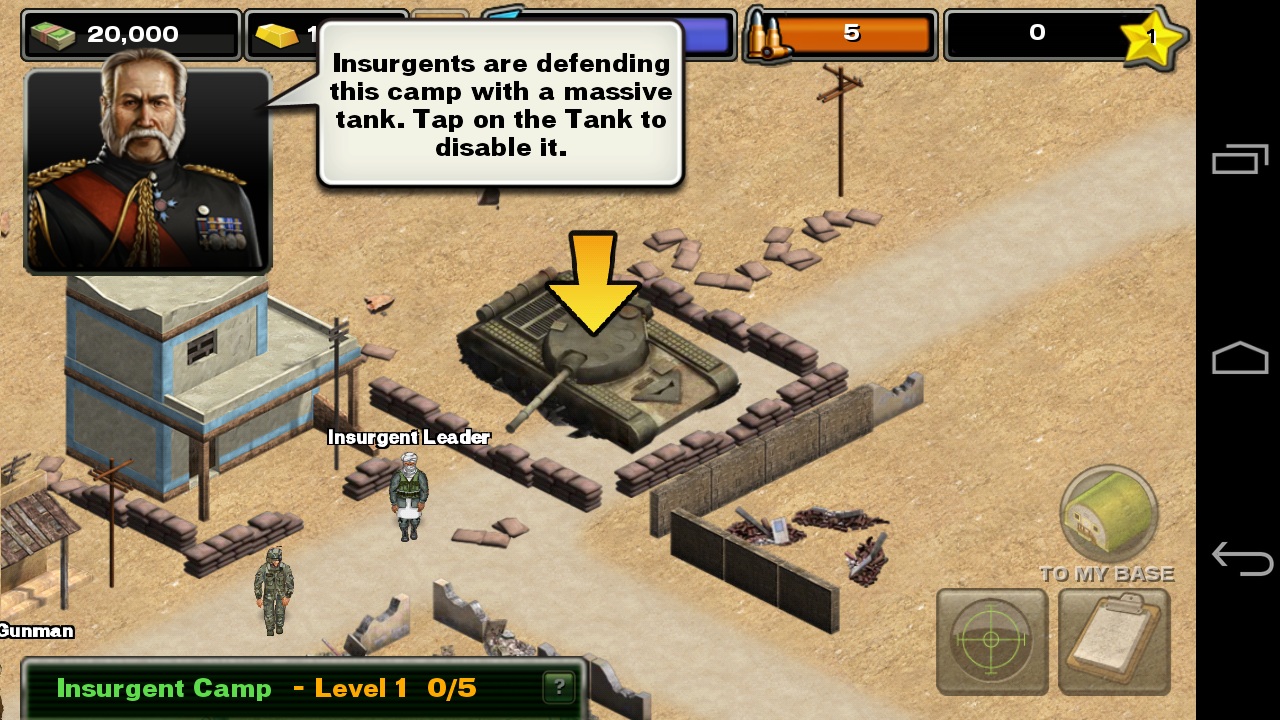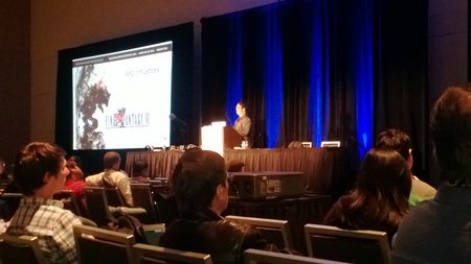"There are some publishers who only want to work with mid-core developers, too."
Indeed, GREE's march into the mid-core market is well documented: Lu himself joined the GREE family when the company he worked for Funzio was acquired by the social gaming giant in 2012.
But, given the very definition of the mid-core gamer group is seemingly up for debate Lu himself loosely describing them as occupying the middle space between core and casual how can developers hope to make money from them?
A modern market
Lu's mid-core expertise come from Funzio's Modern War, which launched before the company's acquisition by GREE, but has since gone on to enjoy increased success.

Modern War
"In a lot of ways, Modern War was already doing well before we were acquired revenue was at $5 million a month," said Lu.
"Since then, we've increased our revenue at hit #2 top grossing consistently. Compared to other giants, though, we're not top. Puzzle & Dragons making up to $75 million a month, for instance. That blows my mind.
"We have to ask how are they doing this? How is a developer making so much money on a free-to-play game?"
The answer, Lu said, is live operations.
The big event
Lu described live operations as the continued monitoring and updating of mobile games post launch an approach, he suggested, that is somewhat different to the traditional console game, where the developer's attention tends to be focused all around the title's launch.
"A triple-A console game will make most of its mone in the first week on sale. DLC also adds mini-bursts," he added.
"Launching Modern War was sorta the reverse. No-one knew the game was out until it was out. On the day of launch, we just got together in the bar and did shots with each other every time it climbed a top grossing rank.
"For F2P, the real work starts when you launch the game that's when the team grows, the revenue comes in, and you start analysing all the data coming in."

Live ops, then, involves launching special timed events in game, such as in Modern War's case the Invasions event, where enemy troops invade a player's base, and they're given a set amount of time to clear them out.
Hard work
For their effort, players are rewarded with key items, and the data GREE takes from the event can then be analysed and use to make the next event even more fruitful.
"You have your core mechanics and core loops some of which are so successful you don't need live ops but the rest of us have to work hard and deliver events," said Lu.
"More than half of our revenue with Moden Wars comes from events it pushes it was beyond the baseline."
Lu said it's important that events are limited to short bursts to encourage engagement, and they need to make sense in the context of the game itself.
"There would be no point in launching space marines in Candy Crush Saga in an event, right? It just wouldn't make sense," he concluded.
"Events need to be wrapped around the usual game play, and deliver tiered awards. Then it's key to monitor analytics you get from the event. We're constantly monitoring our analytics, and constantly fine tuning our design as a result."






















